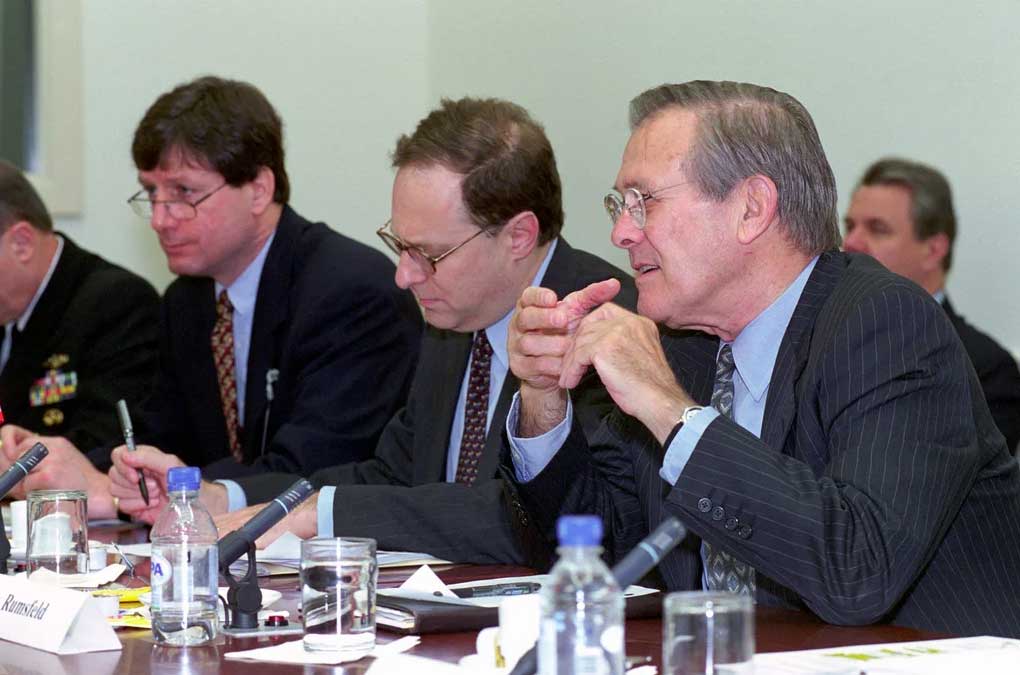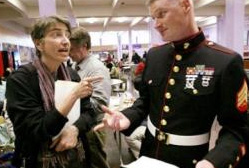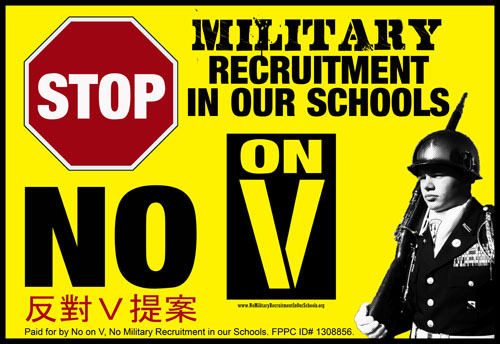 April 4, 2008 / Tom Burghardt / Antifascist Calling - The New York Times reported Wednesday that the Pentagon is “expected to shut a controversial intelligence office that has drawn fire from lawmakers and civil liberties groups who charge that it was part of an effort by the Defense Department to expand into domestic spying.”
April 4, 2008 / Tom Burghardt / Antifascist Calling - The New York Times reported Wednesday that the Pentagon is “expected to shut a controversial intelligence office that has drawn fire from lawmakers and civil liberties groups who charge that it was part of an effort by the Defense Department to expand into domestic spying.”
The Counterintelligence Field Activity (CIFA), created by former Secretary of Defense Donald Rumsfeld after the September 11 attacks, illegally conducted broad domestic operations that targeted antiwar and other dissident domestic groups.
Mark Mazzetti writes,
The move, government officials say, is part of a broad effort under Defense Secretary Robert M. Gates to review, overhaul and, in some cases, dismantle an intelligence architecture built by his predecessor, Donald H. Rumsfeld. …
The Pentagon’s senior intelligence official, James R. Clapper, has recommended to Mr. Gates that the counterintelligence field office be dismantled and that some of its operations be placed under the authority of the Defense Intelligence Agency, the government officials said. (Mark Mazzetti, “Pentagon is expected to close intelligence unit,” The New York Times, April 2, 2008)
Portions of CIFA, notably its Threat and Local Observation Notice (TALON) database, were allegedly dismantled after documents uncovered by the ACLU through a Freedom of Information Act (FOIA) lawsuit, revealed in 2006 that the Department of Homeland Security, the FBI’s Joint Terrorism Task Force and local police departments had supplied the Pentagon with information that aided intelligence operations against the antiwar movement.
According to a report published in 2006 by The New Standard,
One of the TALON documents was written to “alert commanders and staff” to a counter-recruitment protest the Broward Anti-War Coalition (BAWC) Broward Anti-War Coalition (BAWC) was staging at the Ft. Lauderdale Air and Sea Show. The alert, submitted by the Miami-Dade police department, said, “BAWC plans to counter military recruitment and the ‘pro-war’ message with ‘guerilla theater and other forms of subversive propaganda.'”
Another document revealed the government is tracking some of the anti-recruitment activities of the American Friends Service Committee, a Quaker peace organization.
A third TALON report detailed counter-recruitment rallies in Georgia, and cited Military Families Speak Out, Veterans for Peace, and Iraq Veterans Against the War as participants.
In December 2005, NBC News obtained part of the TALON database that included reports on about 48 anti-war meetings or protests. (Megan Tandy, “Pentagon Treats Counter-Recruitment Activism as Terrorism,” The New Standard, October 16, 2006)
What the Times reporter failed to mention, is that CIFA is probably the most heavily-outsourced unit in the Pentagon’s intelligence arsenal.
According to national security analyst R.J. Hillhouse, “over 30 corporations provide 90% of CIFA’s staff,” drawn from a bevy of security and defense firms.
An early CIFA recipient of Bush crime family largess was none other than Mitchell Wade, the disgraced former CEO of MZM Inc. who pleaded guilty to conspiracy and bribery charges in 2006 in connection with the sleazy shenanigans of now-imprisoned Rep. Randy “Duke” Cunningham (R-CA).
In a cash-and-hookers-for-contracts scandal, Cunningham oversaw a number of questionable appropriations given by CIFA to Wade’s MZM. As a member of the House Intelligence Committee, Cunningham chaired the terrorism subcommittee that had authority over CIFA’s operations. He acted accordingly, showering his “friends” with dubious “earmarks” slipped into various Department of Defense (DoD) appropriations.
When CIFA’s two top officials, David A. Burt II and his deputy, Joseph Hefferon abruptly resigned in August 2006, Pentagon officials were quick to deny any link to on-going corruption investigations, claiming their departure was “a personal decision that they both made together,” according to The Washington Post.
In January 2008, Tim Shorrock reported that a crony of former Defense Secretary Donald Rumsfeld, Stephen Cambone, who helped oversee CIFA’s creation, joined a firm when he left the Pentagon that recently, was awarded a multi-million dollar contract to manage the dodgy intel outfit. Shorrock writes,
On January 7, QinetiQ (pronounced “kinetic”) North America (QNA), a major British-owned defense and intelligence contractor based in McLean, Virginia, announced that its Mission Solutions Group, formerly Analex Corporation, had just signed a five-year, $30 million contract to provide a range of unspecified “security services” to the Pentagon’s Counter-Intelligence Field Activity office, known as CIFA.
According to Pentagon briefing documents, CIFA’s Directorate of Field Activities “assists in preserving the most critical defense assets, disrupting adversaries and helping control the intelligence domain.” Another CIFA directorate, the Counterintelligence and Law Enforcement Center, “identifies and assesses threats” to military personnel, operations and infrastructure from “insider threats, foreign intelligence services, terrorists, and other clandestine or covert entities,” according to the Pentagon. A third CIFA directorate, Behavioral Sciences, has provided a “team of renowned forensic psychologists [who] are engaged in risk assessments of the Guantanamo Bay detainees.” (Tim Shorrock, “QinetiQ Goes Kinetic: Top Rumsfeld Aide Wins Contracts from Spy Office He Set Up,” CorpWatch, January 15, 2008)
But over and above questionable crony-capitalist Pentagon contracts, is the nature of CIFA’s brief as an outsourced spy agency targeting American citizens exercising their constitutionally-protected right to protest the Bush regime’s illegal “preemptive wars ” waged across Central Asia and the Middle East.
Pentagon spokesperson Lt. Col. Patrick Ryder, claimed that CIFA’s alleged shut-down has nothing to do with its controversial “mission.” Ryder told the Times that CIFA would be folded into already-existing intelligence offices within the Pentagon and that the move is aimed at “‘creating efficiencies and streamlining’ Pentagon efforts to thwart operations by foreign intelligence services and terror networks.”
But a new batch of documents released on Tuesday to the ACLU, revealed that CIFA was coordinating its activities with the FBI, issuing hundreds of national security letters to banks and credit agencies to obtain financial records in “terrorism and espionage investigations.”
When one considers the sordid–and illegal–activities by various intelligence arms of the Pentagon during the 1960s and 1970s, the latest revelations by the Defense Department can hardly be reassuring. According to Peter Dale Scott,
…in April 2002, Defense Dept. officials implemented a plan for domestic U.S. military operations by creating a new U.S. Northern Command (CINC-NORTHCOM) for the continental United States. Defense Secretary Donald Rumsfeld called this “the most sweeping set of changes since the unified command system was set up in 1946.”
The NORTHCOM commander, Defense Secretary Donald Rumsfeld announced, is responsible for “homeland defense and also serves as head of the North American Aerospace Defense Command (NORAD)…. He will command U.S. forces that operate within the United States in support of civil authorities. The command will provide civil support not only in response to attacks, but for natural disasters.” (Peter Dale Scott, “Homeland Security Contracts for Vast New Detention Camps, Pacific News Service, January 31, 2006)
Pentagon “outsourcing” of intelligence operations to corporations provide yet another layer of “plausible deniability” to the DoD as it wages the administration’s odious “war on terror” against the American people.
As with other shut-downs of controversial Pentagon projects, notably former Admiral John Poindexter’s Total Information Awareness spy operation, CIFA’s successor will undoubtedly burrow ever-deeper within the DoD’s opaque bureaucracy–with plenty of assistance from well-heeled security firms–and little oversight from a supine Congress.
Source: https://antifascist-calling.blogspot.com/search?q=Secretive+Pentagon+Spy+Unit%3A+Closed+or+Outsourced%3F
Additional Documents
Additional Information
The ACLU documents do not provide a comprehensive list of counter-recruitment groups that Homeland Security spied on during the Iraq war. However, the documents do show that the Pentagon gathered information on anti-war protesters using sources from the Department of Homeland Security, local police departments and FBI Joint Terrorism Task Forces 1.
Please consider becoming a supporter of The National Network Opposing the Militarization of Youth
And our work to demilitarize our schools and youth.
Donate Here
###
Revised: 01/18/2024 - GDG
###




 June 30 2009 / BBVM / Truthout - For the past four years, I have observed the military occupation of the high school where I teach science. Currently, Chicago’s
June 30 2009 / BBVM / Truthout - For the past four years, I have observed the military occupation of the high school where I teach science. Currently, Chicago’s  October 28, 2008 / Marc Norton / BeyondChron - “Without JROTC, I would not be where I am today: a Staff Sergeant in the United States Army.” So writes Jason, a former JROTC cadet, in a recent Facebook post on the Keep JROTC Alive in San Francisco site. “As a young teenager,” he continues, “the JROTC program helped me develop discipline, leadership skills, and values which I continue to use today. So let’s keep the JROTC program alive!”
October 28, 2008 / Marc Norton / BeyondChron - “Without JROTC, I would not be where I am today: a Staff Sergeant in the United States Army.” So writes Jason, a former JROTC cadet, in a recent Facebook post on the Keep JROTC Alive in San Francisco site. “As a young teenager,” he continues, “the JROTC program helped me develop discipline, leadership skills, and values which I continue to use today. So let’s keep the JROTC program alive!”





